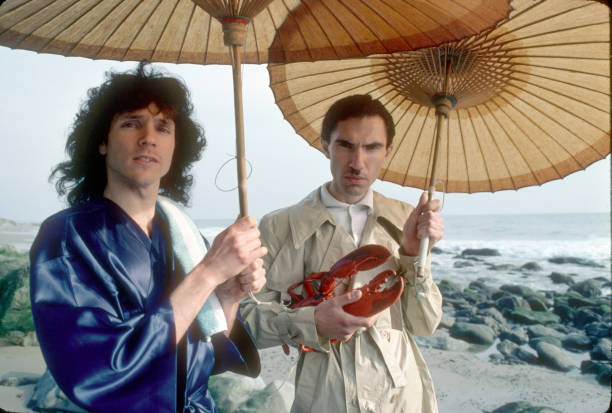
The Ethereal Echo of Loss and Longing: A Journey to an Otherworldly Sanctuary
In the sprawling, eclectic career of the brothers Ron and Russell Mael, collectively known as Sparks, few songs carry the same quiet, reflective weight as “Here in Heaven.” Released in 1977 on the duo’s ambitious, yet commercially underwhelming, eighth studio album, Introducing Sparks, this ballad stands as an introspective counterpoint to the band’s typical eccentric, high-energy pop dramatics.
At the time of its release, the album as a whole struggled to make a significant impact. Unlike the glorious UK chart success of their earlier mid-seventies glam-pop era, or the later renaissance they would find with Giorgio Moroder in the disco realm, Introducing Sparks, and consequently “Here in Heaven,” failed to chart in either the UK or the US. This lack of initial commercial success only adds to the song’s mystique, positioning it as a forgotten gem—a private moment caught between two grand, more public chapters in the Sparks saga. It’s a track that rewards the devoted listener who takes the time to dig beneath the surface of the band’s well-known hits.
The heart of “Here in Heaven” lies in a powerful, wrenching narrative that feels surprisingly direct for the often-oblique Mael brothers. It is a poignant, first-person account from someone who has died and is now residing in the afterlife—in heaven, as the title suggests. However, this is no typical image of eternal bliss. The song’s genius—and its deep emotional resonance for older readers—lies in its profound sense of isolation and incompleteness.
The deceased narrator is desperately trying to communicate with his loved one still on Earth, using his ‘celestial’ position to look down upon her and offer comfort. He implores her not to weep and assures her, “I’m better off now,” a conventional piece of comforting wisdom often imparted to the grieving. Yet, the music and Russell Mael’s earnest vocal performance tell a more sorrowful truth: he is the one suffering. The ‘heaven’ he inhabits is magnificent but ultimately meaningless without the singular human connection he left behind. The lyrics paint a picture of an otherworldly perfection that is cruelly inadequate, driving home the simple, painful message that no grandeur can replace true human love. It is a beautiful subversion of the traditional afterlife, suggesting that true paradise isn’t a place, but a person.
For those of us who have lived long enough to accumulate both joy and loss, the song evokes a potent sense of nostalgia and reflection. We remember the profound finality of separation, the desire to reach across an impossible gulf and offer one last touch or word. Sparks masterfully taps into that universal human longing, turning a metaphysical concept into an incredibly intimate, domestic tragedy. It’s a song for quiet evenings, a meditative piece that reminds us that the bonds we forge in this messy, imperfect life are the only treasures that truly matter, eclipsing any promise of a flawless hereafter. The song, with its gentle piano and soaring melody, feels like a private sigh—a beautiful, heartbreaking anomaly in the band’s storied repertoire.